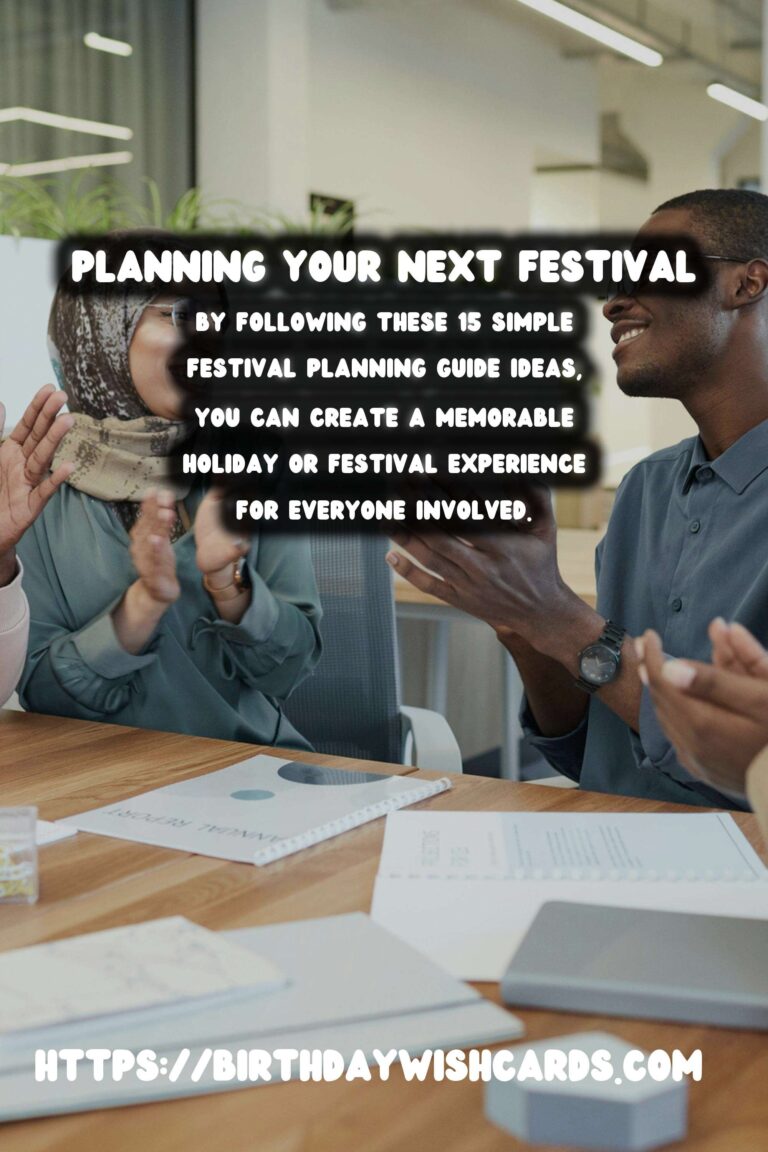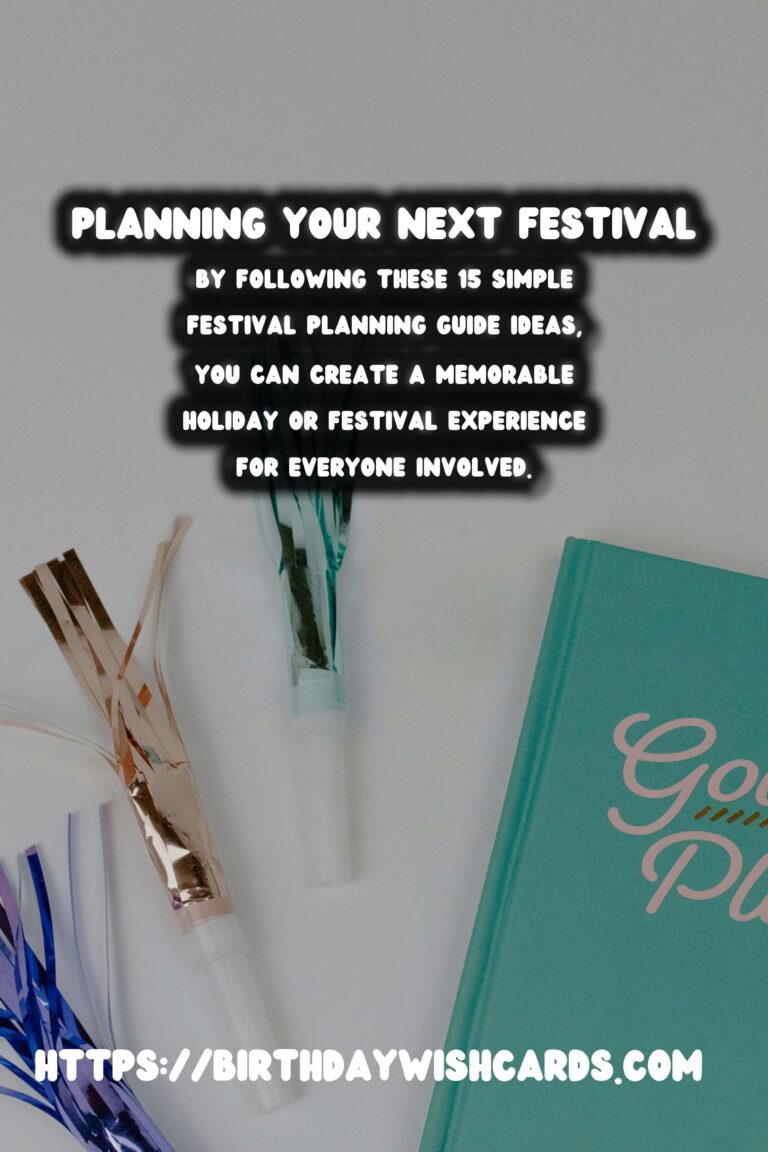
Festivals are the perfect time to bring friends and family together, creating beautiful memories and celebrating traditions. Whether it’s a holiday or a local festival, planning is key to ensuring a smooth and enjoyable experience. In this article, we’ll explore 15 simple festival planning guide ideas that will help you organize your next event with ease.
1. Set a Budget
The first step in planning any festival is to establish a budget. Determine how much you can spend and allocate funds to different aspects of the festival, such as venue, food, decorations, and entertainment. Staying on budget will help you manage expenses and avoid unnecessary financial stress.
2. Choose a Theme
Selecting a theme for your festival can add a cohesive look and feel to the event. Consider the season, cultural significance, or a unique concept that reflects the interests of your audience. A well-defined theme can guide your decorations, activities, and even the food served.
3. Pick a Suitable Date
Choosing the right date is crucial for festival success. Check local calendars to avoid conflicts with other major events and consider the weather conditions for outdoor festivities. Make sure to give your guests plenty of notice so they can mark their calendars.
4. Find a Venue
The venue plays a significant role in the atmosphere of your festival. Depending on your budget and theme, you can choose between parks, community centers, or even private backyards. Ensure the location has enough space for activities and amenities like restrooms and parking.
5. Organize Activities
Plan a variety of activities that cater to all age groups. Consider games, live music, workshops, or food tastings. Engaging activities will keep your guests entertained and encourage them to stay longer.
6. Promote the Event
Once everything is in place, it’s time to promote your festival. Utilize social media, flyers, and local event listings to spread the word. Make sure your promotional materials capture your theme and clearly outline the date, location, and activities.
7. Arrange for Vendors
Food and beverage vendors can make or break a festival. Reach out to local restaurants, food trucks, and artisans to offer diverse food choices. Ensure that vendors align with the theme and maintain high standards of quality.
8. Coordinate Volunteers
Having a team of enthusiastic volunteers can lighten your load and enhance the guest experience. Recruit friends, family, or community members to help with tasks such as registration, setup, and managing activities throughout the day.
9. Develop a Schedule
A detailed schedule will help you manage your festival seamlessly. Breakdown the day into time blocks for each activity and assign responsibilities to your volunteers. Keep a copy on hand to ensure everything runs on time.
10. Prepare for Contingencies
Even the best-laid plans can go awry. Plan for potential issues such as bad weather or vendor cancellations by having backup options ready. This could include reserving a tent for rain or having alternative entertainment lined up.
11. Create an Atmosphere
The right ambiance can elevate your festival. Use decorations, lighting, and music that align with your theme to create a welcoming and festive atmosphere. Consider incorporating local charms to enhance the experience.
12. Implement Safety Measures
Safety should always be a priority during festivals. Ensure the venue complies with safety regulations, and have first aid kits readily available. It’s also a good idea to have a plan for managing crowd control if necessary.
13. Gather Feedback
After the festival, gather feedback from participants and volunteers. This can be done through surveys or informal conversations. Understanding what worked and what did not, will help you improve future festivals.
14. Document the Event
Capture memories of your festival by taking plenty of photos and videos. This documentation will be invaluable for marketing future events and creating a sense of community pride.
15. Thank Your Participants
After the dust settles, take the time to thank your volunteers, vendors, and attendees. A simple thank-you note or social media shout-out goes a long way in building relationships and ensuring they attend future events.
By following these 15 simple festival planning guide ideas, you can create a memorable holiday or festival experience for everyone involved. Each step is designed to make your planning process easier and more organized, ensuring your festival is a resounding success. Happy planning!
Festivals are the perfect time to bring friends and family together, creating beautiful memories and celebrating traditions. By following these 15 simple festival planning guide ideas, you can create a memorable holiday or festival experience for everyone involved.
#FestivalPlanning #EventManagement

